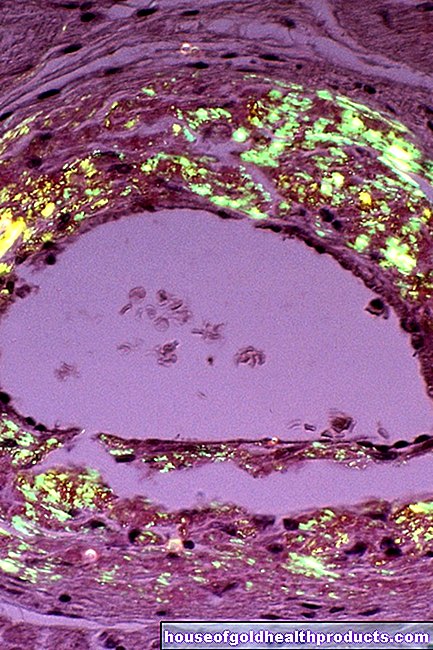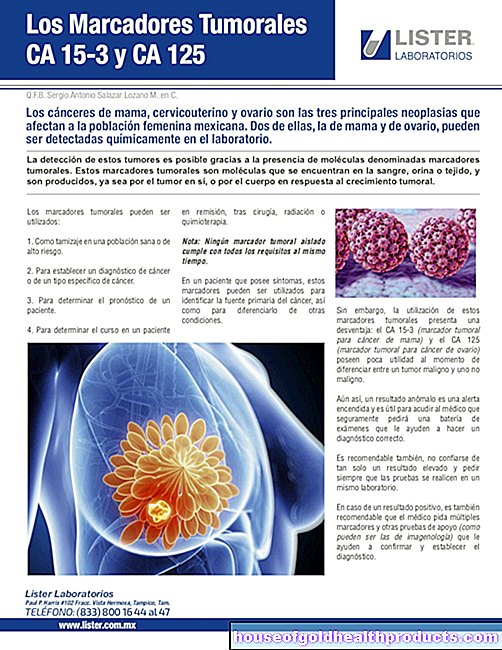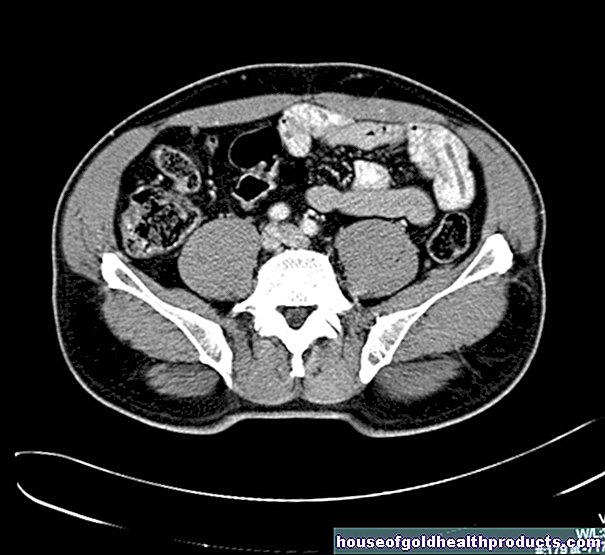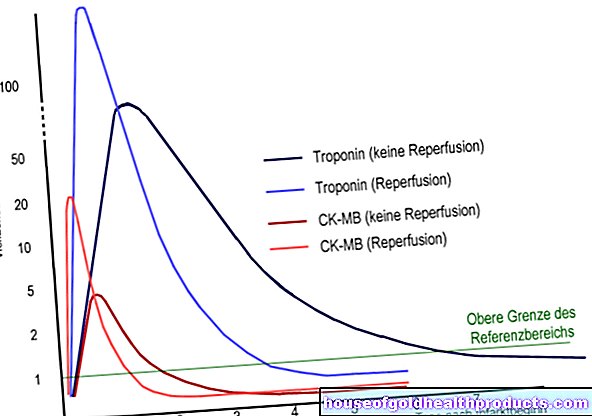Artificial birthmark warns of cancer
Christiane Fux studied journalism and psychology in Hamburg. The experienced medical editor has been writing magazine articles, news and factual texts on all conceivable health topics since 2001. In addition to her work for, Christiane Fux is also active in prose. Her first crime novel was published in 2012, and she also writes, designs and publishes her own crime plays.
More posts by Christiane Fux All content is checked by medical journalists.A skin implant that turns dark in the event of cancer? Such an early warning system seems futuristic. Tests with mice have already proven that such an implant could actually work.
The earlier a cancer is discovered, the greater the chance of a cure. However, patients often only go to the doctor when a tumor becomes noticeable. Then the therapy is usually more stressful and the chances of recovery are worse.
Cancer tumors raise calcium levels
Researchers led by Prof. Martin Fussenegger from the Department of Biosystems Technology at ETH Zurich in Basel have made use of the fact that the calcium levels in the blood rise in the course of some cancers. This also includes the most common types of tumors: breast, prostate, lung and colon cancer as well as liver cancer.
Biomedical skin tattoo
The biomedical tattoo consists of an implant that is equipped with genetically modified human cells. These have a calcium receptor. If the calcium levels are above a certain threshold for a long time, the cells begin to produce the pigment melanin: the transplant turns dark like a birthmark.
Early detection works in mice
The method has already worked in experiments with cancer-stricken mice: it only became discolored in those rodents that had developed tumors that raised calcium levels. Above all, melanin production started long before the animals showed the first symptoms of the disease. This increases the chances of recovery considerably.
False alarms cannot be ruled out
There is one catch, however: elevated calcium levels can also have other causes. These include, for example, kidney dysfunction or the use of certain medications. In that case, the cancer detector birthmark would set off a disturbing false alarm. In medicine, this is known as a false positive diagnosis.
They usually frighten those affected. They also result in examinations that can be stressful. But this also happens with the early detection methods that are common today - and with them, the tumors are usually detected later than would be possible with the new method.
Early detection means less aggressive therapy
If the implant turns dark, there is no need to panic at first, says study leader Fussenegger: "The mole does not mean that the person will soon die." On the contrary: If the suspicion is confirmed, there is enough time for the therapy early stage must be much less aggressive than later.
Ten years until market launch
It will probably take some time before it is ready for the market - the artificial birthmarks have only worked for about a year so far. Then they have to be replaced. Fussenegger estimates that biomedical tattoos can be used for early detection in about ten years.
Calcium - more versatile than expected
Calcium is required by all living cells to maintain their normal structure and function. It was only recently discovered that calcium also plays a decisive role in central cellular processes such as the differentiation of cells or the demise of old or sick specimens.
The calcium level in the body is regulated very precisely within minutes. Some tumors disturb this finely balanced equilibrium, so that the calcium level rises.
Tags: baby toddler Baby Child eyes













-warten-auf-den-piks-der-freiheit.jpg)















